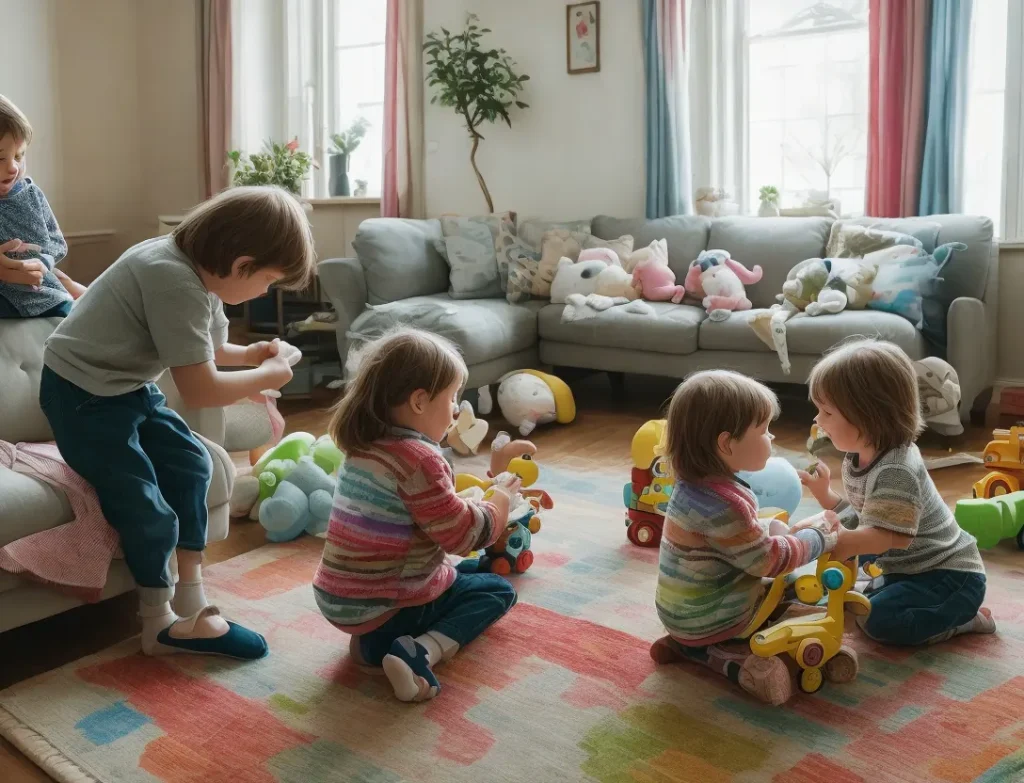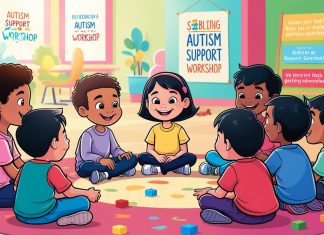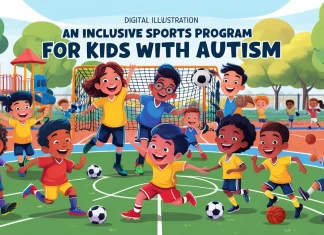Introduction
Being a sibling to a child with autism can be both rewarding and challenging. Autism Spectrum Disorders (ASD) affect individuals in unique ways, and siblings play a crucial role in their support system. In this article, we will delve into the world of Autism Sibling Support for Children and explore how siblings can provide invaluable support to their brothers and sisters with autism. We will also discuss essential strategies for parents and caregivers to nurture positive relationships between siblings and create a supportive environment for all children in the family.
Understanding Autism and Its Impact on Siblings

What is Autism?
Autism, or Autism Spectrum Disorder (ASD), is a neurodevelopmental condition characterized by challenges in social communication, repetitive behaviors, and restricted interests. Children with autism often experience difficulties in understanding and expressing emotions and may have sensory sensitivities.
Autism Spectrum Disorders (ASD)
The autism spectrum encompasses a wide range of abilities and challenges. Some individuals with autism may have exceptional talents and strengths, while others may require significant support in daily life.
The Prevalence of Autism
The prevalence of autism has been steadily increasing over the years, making it essential for society to understand and support individuals with autism and their families.
Challenges Faced by Siblings of Children with Autism
Siblings of children with autism may encounter various challenges, including feelings of confusion, frustration, and isolation. They may struggle to understand their sibling’s behaviors and find it difficult to connect with them.
The Importance of Sibling Support

Emotional Support
Providing emotional support to siblings of children with autism is crucial. It involves validating their feelings, offering a safe space to express emotions, and promoting a sense of belonging within the family.
Practical Support
Practical support involves assisting with daily tasks, especially when the child with autism requires extra attention and care. Siblings can contribute to creating a supportive and organized environment at home.
Advocacy and Education
Siblings can become advocates for their brothers and sisters with autism. They can educate others about autism and raise awareness to combat misconceptions and stereotypes.
Nurturing Positive Sibling Relationships

Encouraging Empathy and Understanding
Parents and caregivers play a significant role in encouraging empathy and understanding between siblings. Engaging in open conversations about autism can foster empathy and reduce misunderstandings.
Fostering Communication and Bonding
Promoting healthy communication and bonding among siblings can strengthen their relationship. Engaging in shared activities and finding common interests can be beneficial.
Addressing Jealousy and Resentment
Feelings of jealousy and resentment are natural but need to be addressed sensitively. Parents can reassure their children of their love and explain the unique needs of their sibling with autism.
Involving Siblings in Autism Therapy
Sibling-Assisted Therapy
In some cases, siblings can actively participate in therapy sessions to support their brother or sister’s development. Therapists can guide siblings on how to engage effectively during therapy.
Siblings as Co-Therapists
Siblings can be excellent co-therapists by implementing therapeutic techniques in daily interactions with their sibling with autism.
Coping Strategies for Siblings
Seeking Professional Help
If siblings are struggling to cope with the challenges of having a brother or sister with autism, seeking professional support can be beneficial.
Engaging in Self-Care
Taking care of their emotional well-being is essential for siblings. Engaging in activities they enjoy and spending time with friends can provide relief from stress.
Connecting with Support Groups
Joining support groups for siblings of children with autism can offer a sense of community and understanding.
The Role of Parents and Caregivers

Providing Individual Attention
Parents need to ensure that each child receives individual attention, including siblings without autism. This can help prevent feelings of neglect or resentment.
Balancing Needs of All Children
Balancing the needs of all children in the family is essential. Understanding each child’s unique requirements and supporting their growth is crucial.
Open Communication
Maintaining open communication with all children allows parents to address concerns and provide reassurance.
Promoting Inclusion and Understanding Outside the Family
Educating Peers and Classmates
Educating peers and classmates about autism can foster a more inclusive and understanding social environment.
Creating Autism Awareness
Promoting autism awareness in the community can reduce stigma and create a supportive network.
Combating Stigma
Addressing and challenging stigma is vital for the well-being of both the child with autism and their siblings.
The Lifelong Journey of Autism Sibling Support

Transitioning into Adulthood
As siblings with autism grow into adulthood, their roles and responsibilities may evolve. Continuing support is essential during this transition.
Continuing Supportive Relationships
Maintaining supportive relationships throughout adulthood can have a positive impact on both the child with autism and their Autism Sibling Support for Children.
Conclusion
Autism Sibling Support for Children with autism is essential for their well-being and overall family harmony. By providing emotional and practical support, fostering positive relationships, involving siblings in therapy, and promoting awareness, we can create a nurturing environment where every child can thrive.
FAQs
How can siblings provide emotional support to children with autism? Siblings can provide emotional support by validating their feelings, offering a safe space to express emotions, and promoting a sense of belonging within the family.
What are some coping strategies for siblings of children with autism? Siblings can cope by seeking professional help, engaging in self-care activities, and connecting with support groups for siblings.
Can siblings actively participate in autism therapy sessions? Yes, in some cases, siblings can participate as co-therapists or be involved in sibling-assisted therapy.
How can parents balance the needs of all their children, including those with autism? Parents can balance their children’s needs by providing individual attention, understanding each child’s unique requirements, and maintaining open communication.
Why is it essential to promote autism awareness in the community? Promoting autism awareness combats stigma and creates a supportive network for individuals with autism and their families.



























